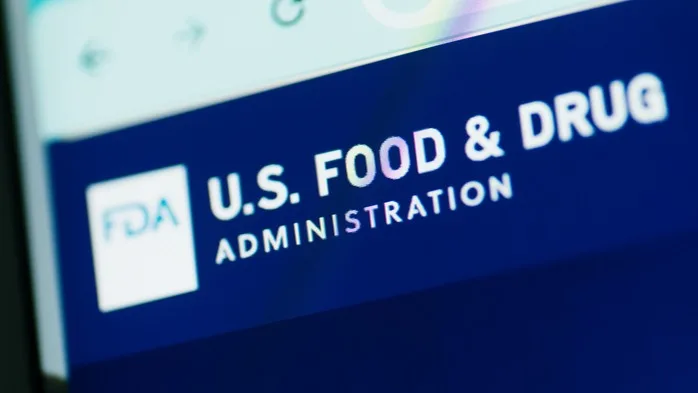
Overview
The FDA is moving swiftly to overhaul its drug and device review process with the help of AI, announcing plans to implement these tools across every agency center by the end of June.
Agency targets June 30 for generative AI deployment across all centers
The FDA plans to aggressively roll out the use of artificial intelligence across all agency centers following a pilot program that helped scientific reviewers reduce the amount of time they would normally spend on paperwork.
FDA Commissioner Martin A. Makary, MD, said the move will reduce “non-productive busywork,” that consumes much of the typical review process, which is supposed to take between six to 10 months depending on the type of approval drug manufacturers have submitted.
“I was blown away by the success of our first AI-assisted scientific review pilot,” said Makary in a news release. “The agency-wide deployment of these capabilities holds tremendous promise in accelerating the review time for new therapies.”
The FDA’s new timeline would see all of its centers—responsible for overseeing drugs, devices, food, and more—operating on a unified generative AI system by June 30. Officials say the rollout is meant to automate tedious, repetitive tasks for scientific staff, freeing them to focus on more complex analysis and decision-making.
Jinzhong Liu, PhD, Deputy Director of the Office of Drug Evaluation Sciences, described the AI pilot as transformative: “This is a game-changer technology that has enabled me to perform scientific review tasks in minutes that used to take three days.”
New AI Plan Could Impact Months-Long PDUFA Process
The Prescription Drug User Fee Act (PDUFA) sets the ground rules for how quickly the FDA must review new drug and biologic applications. Under current guidelines, the agency aims to review standard applications within 10 months and priority applications, such as those for drugs addressing serious or unmet needs, within six months. These timelines are designed to streamline the process while maintaining rigorous scientific review.
While historical FDA performance data show the agency met or surpassed its review goals, this year’s performance includes several missed PDUFA dates. In fiscal year 2022, the FDA reviewed 100 percent of both standard and priority new drug applications on time and preliminary numbers for 2023 show on-time action rates greater than 90 percent across most categories.
However, the FDA missed multiple PDUFA action dates this year, including for those of Stealth BioTherapeutics’s rare disease drug elamipretide, Novavax’s updated COVID-19 vaccine and GSK’s IL-5 antibody Nucala. The agency is one of many impacted by staff reductions across the new administration. On April 1, the FDA terminated 3,500 employees. The preliminary FY2026 budget for the FDA is $2.9 billion, a cut of 18.6 percent from FY2024.
The agency’s aim with using AI to speed up reviews could alleviate broader concerns about slowdowns in the approval process that industry executives, analysts and investors fear may come from the administration’s agency cutbacks. (See: “Drugmakers Brace for Trump-Era Shifts on Tariffs, Manufacturing and Regulation.”)
FDA Light on AI Plan Details
Legal analysts note that while the FDA’s AI rollout is a major shift, its announcement leaves important gaps. King & Spalding wrote in a client alert note that the agency did not specify which review tasks will use AI, how the pilot was conducted or the criteria for success.
The firm also questions whether sponsors will be notified when AI is involved in their application’s review, and how this could affect appeals or disputes. It’s also unclear if AI will speed up timelines or simply help the FDA maintain its current pace.
“It remains to be seen whether [drug developers] will see tangible improvements in review timelines, or whether FDA will continue to perform reviews in line with existing review timelines,” the law firm wrote.
An analysis by Hogan Lovells adds that AI-driven reviews may reduce transparency, making it harder for sponsors to know how much AI influenced regulatory decisions, or to contest findings if the logic isn’t fully explained. The firm also points to new challenges in protecting trade secrets and confidential information under laws like the Trade Secrets Act and FOIA, given the scale and scope of generative AI.
“These risks underscore the importance of AI system validation, the traceability and reproducibility of AI data assessments, model interpretability, and clear agency communication when AI is used in regulatory determinations,” the firm wrote.
Next Steps: Too Important to Delay
The FDA plans on continuing to assess the performance of AI while gathering feedback to refine features and use of the technology. The agency will provide additional updates and details in June, though Makary framed the move as long overdue.
“There have been years of talk about AI capabilities in frameworks, conferences and panels but we cannot afford to keep talking. It is time to take action,” Makary said in the FDA statement. “The opportunity to reduce tasks that once took days to just minutes is too important to delay.”








